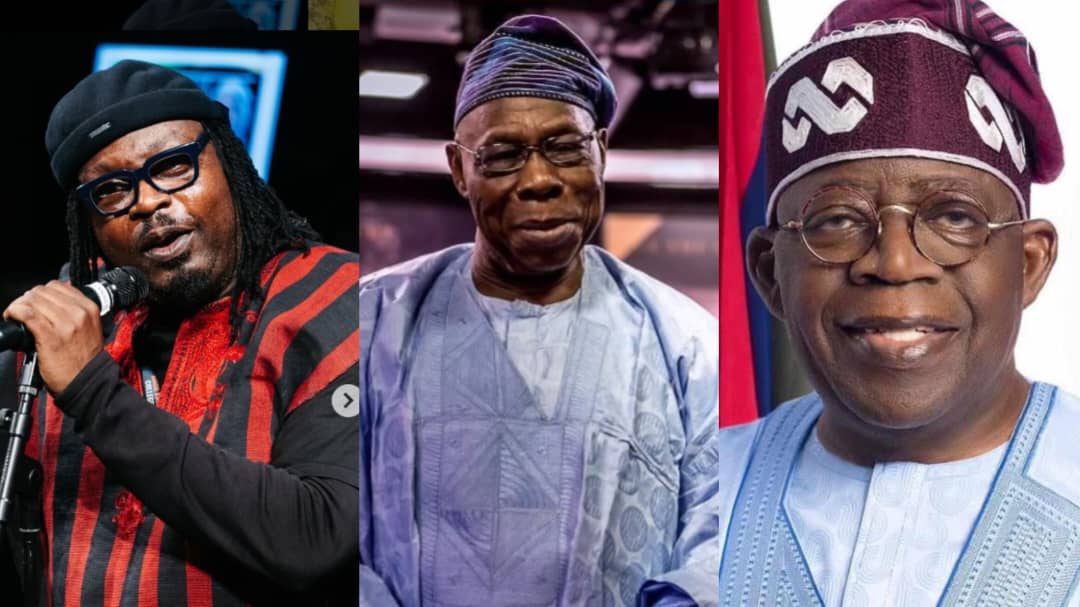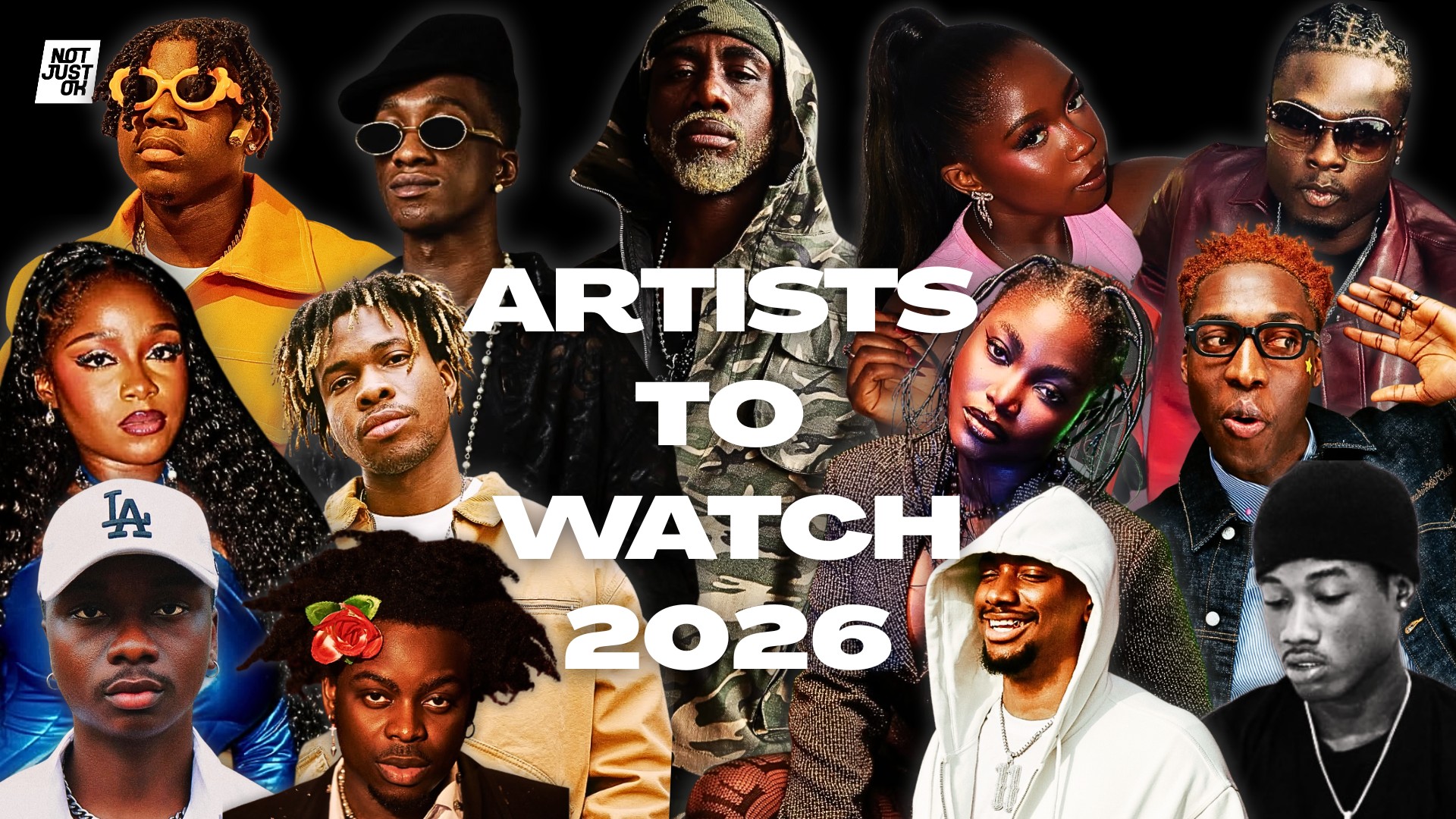From 'Jaga Jaga' to 'Tell Your Papa': How Eedris Abdulkareem keeps speaking out against bad government

Eedris Abdulkareem has built a legacy of activism through music, using powerful songs like Jaga Jaga and Tell Your Papa to call out bad governance and speak truth to power.
For over two decades, veteran Nigerian rapper Eedris Abdulkareem has remained a defiant voice against perceived government misrule and societal injustice. With his latest protest single, Tell Your Papa, currently banned from Nigerian airwaves by the National Broadcasting Commission (NBC), Abdulkareem has once again sparked national debate, reaffirming his position as one of the country’s most outspoken musical activists.
A Legacy of protest: The Jaga Jaga era
Eedris Abdulkareem first made known his activist reputation with the 2004 release of the music, Jaga Jaga. This was a blunt critique of corruption, poverty, and mismanagement in Nigeria. The song resonated widely with a frustrated populace yet drew the government's ire. Then, President Olusegun Obasanjo publicly condemned the track, claiming it portrayed the country in a bad light. The Nigeria Broadcasting Commission subsequently banned it from radio and television.
Instead of silencing Abdulkareem, the controversy amplified his voice. Jaga Jaga became an anthem of protest and youth disenchantment, establishing him as a musical icon of rebellion. The phrase itself entered public discourse as a shorthand for systemic dysfunction.
Tell Your Papa: A modern echo of protest
Fast forward to April 2025: Abdulkareem released Tell Your Papa, a track that directly criticises President Bola Tinubu’s administration. With lines questioning the rising cost of living, insecurity, unemployment, and elite privilege, the song paints a bleak picture of Nigeria’s current reality.
On April 10, 2025, NBC banned the song, citing violations of the Nigerian Broadcasting Code. In a memo signed by NBC’s Coordinating Director of Broadcast Monitoring, Susan Obi, Tell Your Papa was labelled "Not To Be Broadcast (NTBB)" under Section 3.1.8, which prohibits content deemed offensive or in breach of public decency.
Abdulkareem quickly responded, likening the ban to the earlier suppression of Jaga Jaga. "It’s obvious that in Nigeria, truth and constructive criticism is always deemed a big crime by the government," he wrote on Instagram.
Viral despite censorship
"Nigerians are süffering, everything Eedris say on that his song is true. We are going to reshoot the video, I will sponsor everything"
— CHUKS 🍥 (@ChuksEricE) April 10, 2025
-Verydarkman reacts after NBC bans Media from broadcasting Eedris Abdulkareem's new song, "Seyi Tell Your Papa" pic.twitter.com/qfIevv7265
Despite being officially banned from Nigerian airwaves by the NBC, Tell Your Papa has gained even more attention online, sparking debates and a growing wave of support. One of the most notable voices backing Eedris Abdulkareem is controversial social media critic Martins Otse, popularly known as VeryDarkMan (VDM). He condemned the ban, arguing that the song speaks hard truths about the country's situation, and criticised the federal government for attempting to silence dissent.
As a show of support, VDM pledged to sponsor a second music video for the song and keep the conversation alive. “Dear Eedris Abdulkareem, we are going to shoot another video. This time, we will sponsor it. I will be in the video,” VDM said, adding that they plan to feature a lookalike of President Tinubu in Tell Your Papa 2. He later shared a screenshot of the payment made to cinematographer Shalom Chiki Uyi for the project, confirming that work on the new video had already begun.
Meanwhile, Amnesty International Nigeria issued a strong statement denouncing the NBC’s action as unlawful and a direct violation of Nigerians’ right to freedom of expression. “Nothing can justify suffocating creative freedom,” the organisation said, warning that such actions set a dangerous precedent for censorship and media repression. They called on President Bola Tinubu to immediately reverse the ban, which they say violates both local and international human rights obligations.
The National Broadcasting Commission’s blatant ban of broadcasting Eedris Abdulkareem’s song “Tell Your Papa” is a clear violation of freedom of expression, which includes the right to obtain information: https://t.co/q4eYNhhxVQ
— Amnesty International Nigeria (@AmnestyNigeria) April 11, 2025
While the federal government insists the song is “disrespectful,” many Nigerians view the ban as an overreaction that has only helped amplify Abdulkareem’s message. The track continues to trend across social media platforms. Videos of Nigerians at home and abroad dancing to the song and sharing their frustrations with the current state of the nation have surfaced. Comments online have praised the song for "saying the truth" and criticised the government for "shutting down what they don’t want to hear."
Abroad based Nigerians vibing to Eedris Abdulkareem’s new viral song 'Seyi Tell Your Papa' 🎶🔥
— 𝙀𝙉𝙏𝙀𝙍𝙏𝘼𝙄𝙉𝙈𝙀𝙉𝙏 𝘿𝘼𝙄𝙇𝙔 🇳🇬 (@Entdaily001) April 14, 2025
pic.twitter.com/ioxJL5NRRU
What began as an attempt to suppress a protest song has turned into a cultural moment. Once again, this proves that music, especially protest music, remains a powerful tool for resistance in Nigeria.
Soyinka joins the fray
Wole Soyinka Condemns Ban on Eedris Abdulkareem Song, Uses Irony to Criticize Government Censorshiphttps://t.co/SUzNynzMwb pic.twitter.com/AzQ5P6UeSB
— Brand Icon Image (@BrandIconImage) April 14, 2025
Nobel laureate Professor Wole Soyinka, never one to shy away from issues of civil liberties, also waded into the controversy. Speaking from New York University, Abu Dhabi, he criticised the NBC for what he called a "dangerous return to censorship."
"It is not only the allegedly offensive record that should be banned—the musician himself should be proscribed," Soyinka remarked sarcastically. "Next, PMAN, or whatever musical association of which Abdulkareem is a member, should also go under the hammer."
He continued, warning that such censorship is counterproductive and antithetical to democratic values. "A government intolerant of criticism is already on a slippery slope to the abyss," he said.
Soyinka admitted he had not listened to the song but stressed the issue was bigger than lyrics. "The ban is a boost to the artist’s nest egg, thanks to free governmental promotion. Mr. Abdulkareem must be currently warbling his merry way all the way to the bank. I envy him."
A call for reflection on free speech and accountability
The ban of Tell Your Papa offers a mirror to reflect on the Nigerian state's relationship with dissent. The music of Eedris Abdulkareem, rooted in the tradition of protest artistry, exposes the tension between state power and creative freedom.
Whether one agrees with his lyrics or not, Abdulkareem’s persistent engagement with national issues is undeniable. His career illustrates the power of music not just to entertain but to provoke, challenge, and inspire.
In a country where many people are tired of bad politics and no longer trust the government, artists like Eedris Abdulkareem help people speak out and hold leaders responsible. As Tell Your Papa keeps spreading online, it shows that banning a song can’t stop a powerful message when its time has come.






